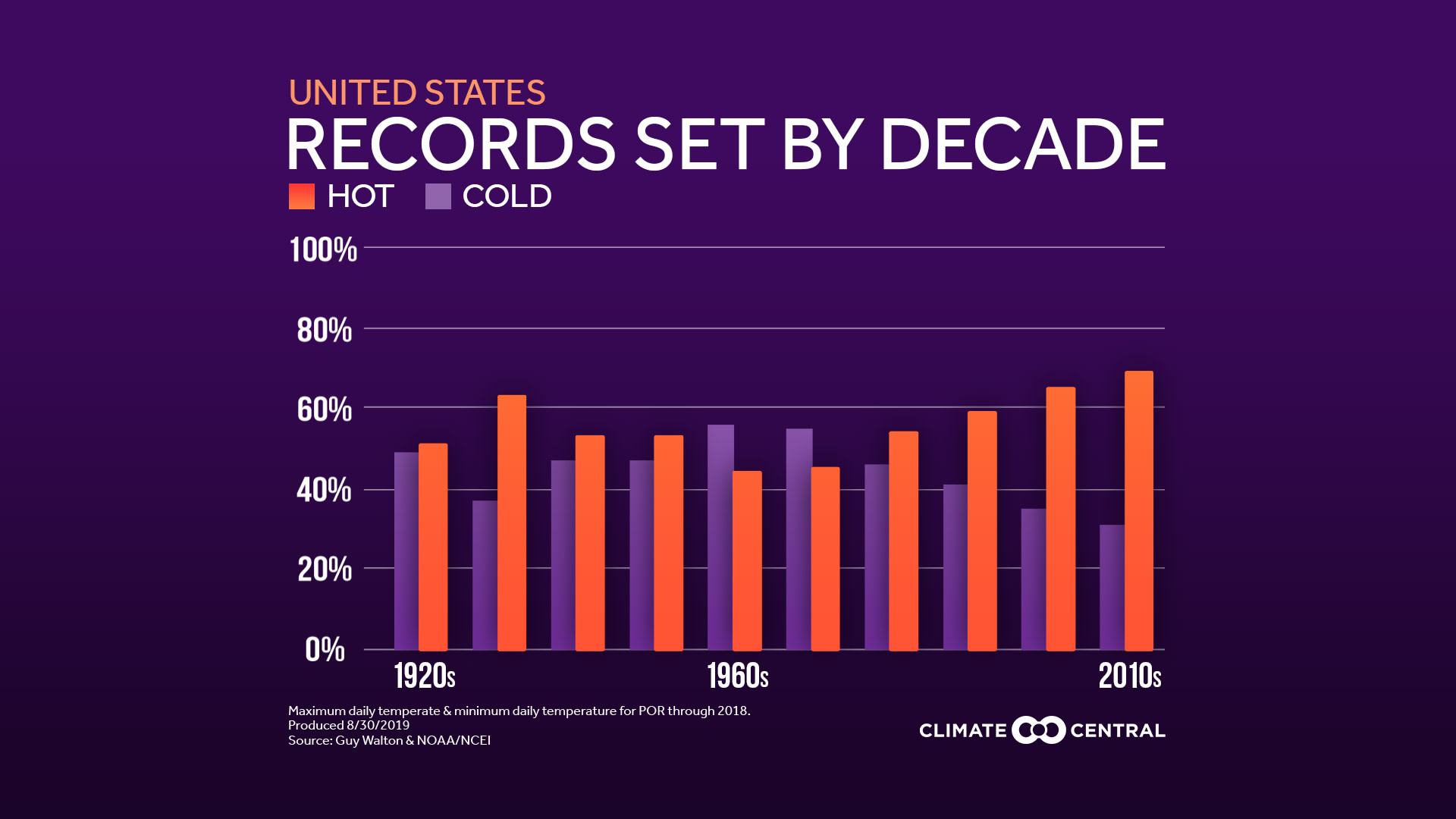With the recent record-breaking heat, Climate Central takes a look at record high temperatures compared to record low temperatures across the United States.
The first week of October, cities from New Orleans, to Washington, D.C. were settingnew high temperature records for the month, just days after places in Montana and Wyoming experienced record amounts of snowfall. School was canceled in Columbus, Ohio, as many buildings lacked the air conditioning needed to give students a break from the extremely high heat and humidity. The astounding wave of extreme heat is not only above normal, but has been smashing long-held records. September was the 2nd hottest September on record for the U.S., and the first week of October continued that warming trend, with dozens of monthly October high temperature records shattered by several degrees.
There have always been swings between hot and cold weather. In a stable climate, these rounds of hot and cold would balance out over time. However, that is not happening, due to the warming from increasing concentrations of greenhouse gas pollutants. The warming has led tomore extreme hot temperatures and milder minimum temperatures, so that record high temperatures are now outpacing record lows.
To illustrate this, Climate Central expanded ourAugust analysis of local daily temperature records to the national level. The temperature records are presented as the percentage of record hot temperatures compared to the percentage of record cold in each decade.
Some noteworthy records across the U.S. this year:
September: 2,740 daily temperature records were set; 97% of which (2,655) were highest maximum records compared to 3% (85) lowest minimum records
September: 244 monthly temperature records were set; 98% of which (240) were highest maximum records compared to 2% (4) lowest minimum records
From September 1 through October 7 (viaNCEI Daily Weather Records tool):
20 of our 244 stations established 10+ daily record highs, 28 had at least 7 days of record highs
Birmingham, Ala. Dothan, Ala., and Macon, Ga., set a daily record high for 10 consecutive days or more
On October 2, 70 of our stations (29%) set a record high
Globally:Data from the Copernicus program indicate that September 2019 was “virtually on a par with 2016” for the warmest September on record globally. NOAA and NASA global temperatures will be released later this month.
Extreme heat is thedeadliest form of extreme weather in the United States, outpacing flooding and causing more deaths than tornadoes and hurricanes combined. Extreme heat is especially risky for vulnerable communities and relatively cooler climates, where risk perception and preparedness is generally lower. It also compounds the impacts of rainfall shortages—leading to flash drought in much of the Southeast and exacerbating the risk of wildfires.
METHODOLOGY: US records are based on data compiled from NOAA/NCEI by former Weather Channelmeteorologist Guy Walton, who maintains a comprehensive records database, analyzing monthly, annual, and decadal records trends.
